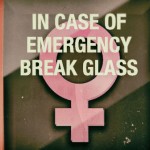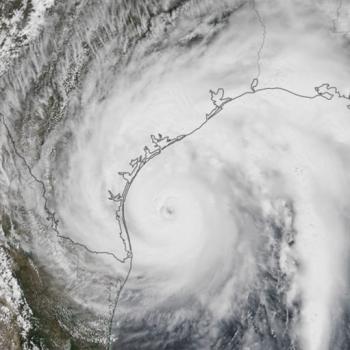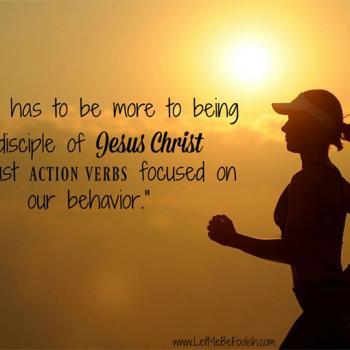This guest post was written by Emma Higgs.

Some days I find it really hard to believe in God.
I sit in church surrounded by the familiar, friendly faces, perusing the notice sheet as the worship band finish their sound check with a chorus of “10,000 Reasons,” and I’m convinced we’ve made it all up.
We’re kidding ourselves, aren’t we? It’s obviously just wishful thinking. A fairy story. A diversion from reality, far too good to be true.
The questions rage, unfiltered, through my mind.
“If there is a God, why would he answer our prayers about the weather for the summer youth camp whilst ignoring the cries of a Syrian mother begging for her three young children to be spared?”
“Even if there is a God who answers prayer, how likely is it that we predominantly white, middle class Baptists in 21st century Britain have him/her all figured out?”
“Isn’t it perfectly possible that all our ‘spiritual’ experiences and answers to prayer can be explained away by psychology and neuroscience?”
I look around at other people in the congregation and wonder, is it just me? Or are there others who have these same doubts but are too afraid to admit it?
It seems to me that people are walking out of church and losing their faith altogether because they are never given space to ask the tough questions. When their worldview expands and the “truth” they were taught in Sunday School stops making sense, the church responds by praying for their poor, backsliding souls and offering easy answers and carefully selected Bible verses.
We have a tendency to take the deepest mysteries of the universe and try to condense them down into straight forward language and neat formulas. Of course, there are names, stories, and metaphors that can give us some sense of understanding of God, but they are only useful as long as we remember that we can never really know what we’re talking about. These metaphors can speak deep, transformative truth into our lives, but if we start trying to speak of this truth in terms of factual reality, we start to lose the plot.
Questions are inevitable. Doubt is a healthy part of faith–it shows we are living, feeling, thinking human beings, and if God is real, I think he can handle it.
I am generally suspicious of Christians who claim to be certain about what they believe. I think religious certainty is one of the biggest problems in the world today, and I think it is driving people out of the church.
Religious certainty tends to make us judgmental of others. We become very good at categorizing people into those who are “in” and those who are not.
Religious certainty can make us so focussed on the spiritual realm and the afterlife that we ignore, or even justify, the catastrophic effect our lifestyles are having on the planet.
Religious certainty leads to violence. If any group holds their beliefs above all else, eventually destroying the “other” using violence will seem justifiable.
Religious certainty has the potential to tear the world apart.
That said, I do totally get it–religious certainty feels great.
I think back to the time when I felt certain about my beliefs, the Bible was clear, and I had no need to question it. In many ways, I really miss that kind of faith. I’m still mourning the loss of the certainty I once felt in Christianity and the cozy sense of security that came with it.
I completely understand why some Christians are so fiercely defensive about their beliefs. They insist that we can be certain because the Bible is inerrant and infallible. They respond to questions and doubts by putting their fingers in their ears and singing louder, or by shaming the one who is doubting.
Life is so much easier when you’re certain about everything. To let doubt have a voice is to risk losing that certainty, or even losing faith altogether, and that can be terrifying.
As uncomfortable and unsettling as it can be, I am learning to embrace doubt as an essential part of my faith. If God exists, he is beyond any of my wildest thoughts, deeper than my deepest fears and able to withstand my most troubling questions.
Some days my faith is strong. I am filled with hope, I sense that I am part of a greater story and I feel consumed by a love wider than the universe.
Other days my faith feels like fumbling around in the dark for a rope, or steering in the vague direction of a small flicker of light on the horizon.
And I think that’s OK. It’s scary, but facing up to my unknowing is often exhilarating and always humbling. If my faith is not at its core a deep, unfathomable mystery, then I’ve lost my way.
“I have a lot of faith. But I am also afraid a lot, and have no real certainty about anything … the opposite of faith is not doubt, but certainty. Certainty is missing the point entirely. Faith includes noticing the mess, the emptiness and discomfort, and letting it be there until some light returns.” –Anne Lamott
 About Emma Higgs
About Emma Higgs
Emma Higgs lives with her husband and two toddlers in Plymouth, England. When she finds a minute, she blogs about progressive theology, Christianity & homosexuality, and mental health, amongst other things, at www.emmahiggs.com. Find her on Facebook and Twitter.












